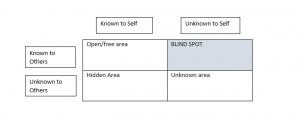“Happy are they that can hear their detractions and put them to mending.”
–William Shakespeare, “Much Ado About Nothing”
“The truth will set you free…but first, it will piss you off.”
–Gloria Steinem
Let’s assume you are a very skilled athlete. (Pick your favorite sport). An elite skier? A top college basketball player who aspires to a professional career? The first thing you would do, beyond the required hours of practice daily, would be to hire a coach. This person would watch you perform and give you immediate verbal feedback. They would videotape you and the two of you would spend hours going over every frame of the tapes so that you could see what you are doing and correct it. In elite sports, feedback is accepted and highly sought after. No top athlete has ever succeeded without it.
Yet in other areas of life we tend to avoid both giving and receiving feedback. Our partner does something that aggravates us daily, yet we ignore it in the spirit of keeping harmony. Our friend has a piece of kale in their teeth, yet we find it embarrassing to point it out to them. And usually, when we make it to the top level of an organization or a work unit, opportunities to obtain genuine feedback from our peers and subordinates are rare unless we actively seek them out.
There is a useful concept called the “Johari window” that illustrates this problem well. The Johari window is an exercise which involves subjects picking from a list of adjectives those that they feel best describe them. A number of peers then do the same. The words form a pattern in a two by two box according to those qualities known to only ourselves, those known to both ourselves and others, those known to only others, or those known to neither.

The area known to others, but unknown to self, is called the Blind Spot. To pick an easy example, everyone else knows how big that bald spot developing on the back of your head is, except for you. But good news! There is a way to illuminate the blindspot, and it’s called FEEDBACK. Simply put, feedback is the mirror that can give us a glimpse of that which we cannot see directly. Leaders can dramatically improve by harnessing the power of feedback. And just like an elite athlete, a leader can never reach their potential without exiting the feedback free track.
So, how does a leader obtain feedback? Well, simply asking for feedback is an obvious way to accomplish this, but in a leadership setting, this can be challenging. Subordinates and peers will often have difficulty giving authentic feedback face to face (although obtaining the skill of comfortably giving authentic feedback as well as receiving it is key for transformed leaders).
In her book, “Fearless Leadership,” Loretta Malandro, PhD outlines ten blind spots that can derail leaders:
- Going it alone
- Being insensitive of your behavior on others
- Having an “I Know” attitude
- Avoiding the difficult conversations
- Blaming others or circumstances (victimhood)
- Treating commitments casually
- Conspiring against others
- Withholding emotional commitment
- Not taking a stand
- Tolerating ‘good enough’
Some of these may apply to you; we all have at least one, and often many. Your coaching engagement with Great Road Leadership will include a process to uncover your blind spots through feedback from stakeholders. Cosmo and I will draft an individualized feedback instrument along with you, using the results to craft your development plan in partnership with you, so you can forever exit the “feedback free track” and merge into the leadership fast track!


